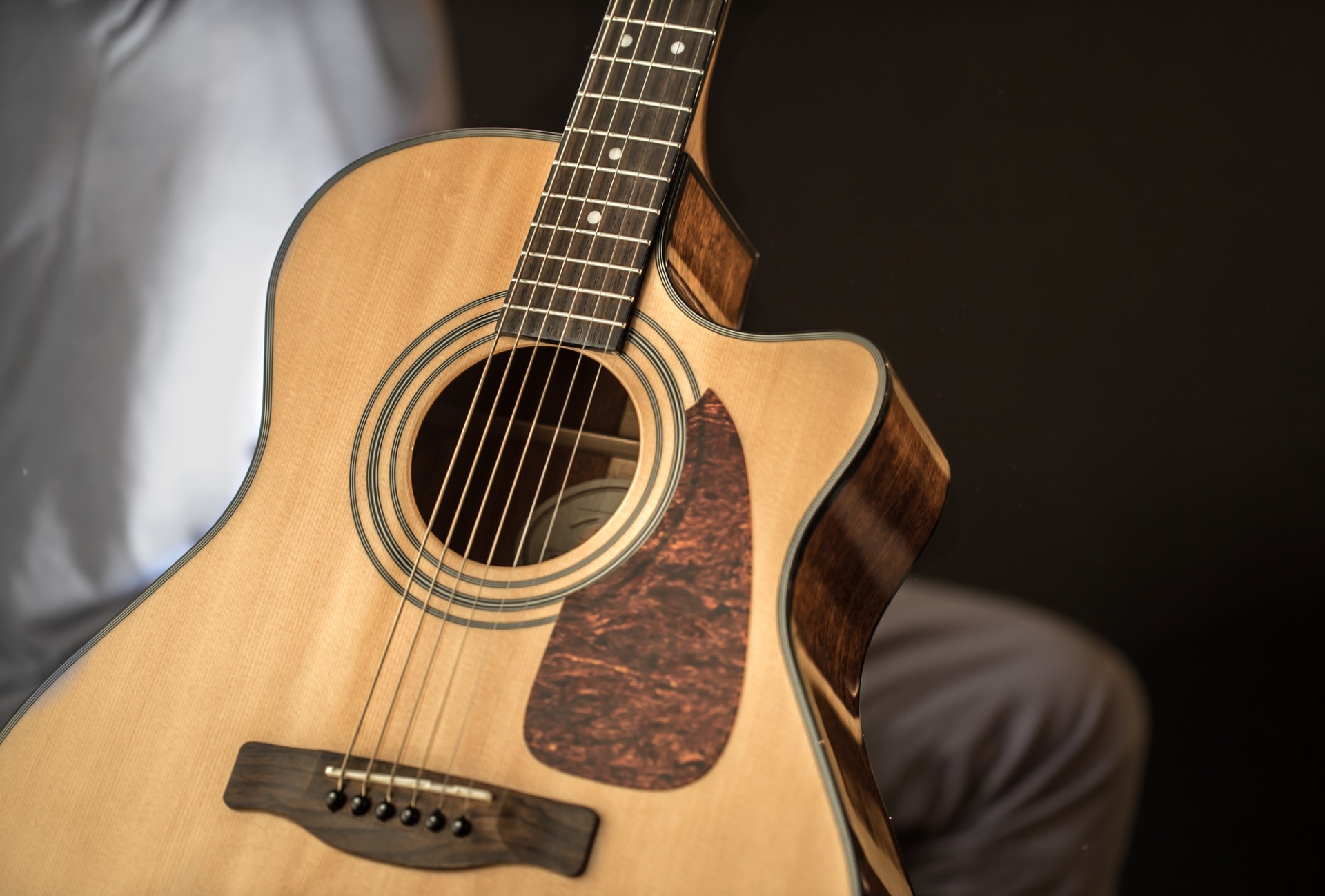Whether shopping for yourself or a loved one, buying a first guitar can seem daunting. In reality, it’s not as tricky as it seems. Here you’ll find a beginner acoustic guitar buyer’s guide to help you pick the best guitar for you!
Tonewood
There are five types of wood most commonly used by guitar crafters, each with its own characteristics.
Cedar
Cedar offers a warm, balanced tone that is a fan favorite for fingerstyle players. This wood is perfect for a lighter touch, lending a rich response and pure tonality.
Mahogany
Mahogany is a dense wood that offers a punchy sound perfect for the blues and country players. Mahogany will be the best pick for guitarists looking for that signature twang.
Maple
Maple bears tone dampening properties, perfect for the back and sides of guitars. A guitar crafted with maple back and sides and a different wood for the top will allow the resonance of that top wood to sing without interference.
Rosewood
Rosewood provides unmatched overtones, rich bottom tones and is the perfect pick for those seeking complexity in their guitar sound. Rosewood guitars will come at a steeper price than other woods but will be dearly cherished for years to come.
Spruce
Spruce offers a lightweight rigidity best used for forceful players with a heavier hand. Tones will be direct and clear with a spruce top, no matter how hard a player strums.
Acoustic or Acoustic-Electric
Choosing between an acoustic or an acoustic-electric really comes down to how you plan to use your guitar. Even if you do not plan to play for an audience now, having the option of plugging your guitar into a PA sometime down the line can be the better choice. Acoustic-electric guitars also let you plug in and record your music at home to play it back and perfect your sound. They also allow you to record song ideas so you can pick them back up later.
Sizing and Body Style
You probably won’t spend much time playing a guitar that isn’t comfortable for you to hold. Size, body style, and neck width all matter when buying your first guitar. The best way to get a feel for what will work best for you is to go to your local guitar shop and try out a range of guitars. Ask the staff to help you find the right fit. If you have smaller hands, a brand known for making smaller necks will be a better fit. A smaller bodied guitar will be best if you have a small frame.
Price Points
Guitars range from under $100 to thousands of dollars. When choosing your first guitar, it may be worth waiting a few months to save up more money for a mid-priced guitar that will offer a better tone and is made of higher quality materials. $200-$400 is more than adequate to get a quality guitar for any beginner. There’s no need to drop $2000 on your first.

